Caribbean Journalists Complete Investigative Journalism Training
Three Belizean journalists have completed a one-week training, organized by the Media Institute of the Caribbean, on investigative journalism. News Five’s Marion Ali and Hipolito Novelo, along with the San Pedro Sun’s Dion Vansen, travelled to Jamaica for the workshop. There, they received training in different aspects of investigative journalism. At the end of the workshop, the journalists are all tasked to work in groups on investigative pieces on relevant, cross-border issues. Marion Ali filed the following report on the importance of this kind of training.
Marion Ali, Reporting
The Media Institute of the Caribbean was founded in 2012 to offer Caribbean journalists the support they need in carrying out their work in their respective countries. Three years later, the institute increased the number of workshops for journalists in the region and in 2019, it began to offer training in its signature program, the Investigative Journalism Fellowship. Kiran Maharaj is the President of the M.I.C. She put together the topics that were deemed important for the training.
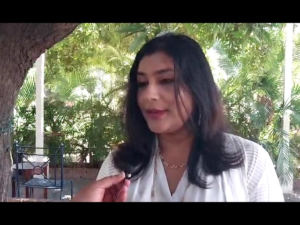
Kiran Maharaj
Kiran Maharaj, President/Co-founder, Media Institute of the Caribbean
“Our working journalists didn’t really have anywhere to go to be able to build their capacity. So that’s why we started to do these programs to fill all of those gaps. So it’s about improving the quality of journalism. It’s also ensuring that our journalists can meet the demands of our audiences. Digital security is very, important in the current landscape, and also disinformation and how we are able to decipher what is real and what is not real, as well as data journalism. We don’t have sufficient data in our region. I don’t know why. We need to encourage open sources of data. We need to ensure that our, governments and our state entities provide better data because then we can help tell their stories as well. But then it also shows that there’s a certain degree of transparency that we want to work towards.”
Retired journalist Jim Clancy, formerly of CNN, worked on groundbreaking stories, including the Jim Jones cult.
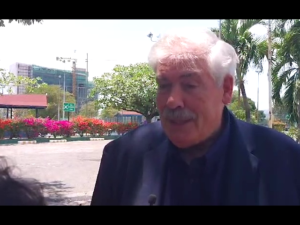
Jim Clancy
Jim Clancy, Trainer, M.I.C Workshop
“The Caribbean investigative journalism network and workshops like this one, give me a chance to give something back and to share that knowledge. This workshop in particular refreshes in a reporter’s mind for journalists, perhaps that aren’t accustomed to working in investigative journalism. journalism, how stories can come together and work for the public good and benefit the readers, the viewers, the listeners, wherever they are.”
Areas covered in the training included digital tracing, digital security tips, and best practices in investigative writing. For the journalists I spoke with, the training is an important tool which they can now apply in the scope of their work.
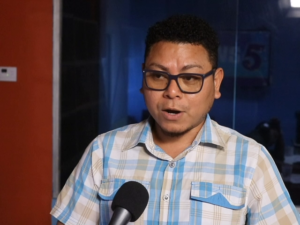
Hipolito Novelo
Hipolito Novelo, Reporter, News 5, Belize
“We have a lot of fake news online nowadays. Everyone wants the news at their fingertips and with A.I. and misinformation and this information and all the fake news out there, we have to ensure that our skills and our techniques are up to date in investigating these stories and events. One of the things that stood out to me, or I had interest in, was a presentation done by Gordon. He deals with investigative journalism, especially online journalism. And one of the sessions he had to deal with the oil spill in Trinidad, with that boat that capsized, and the oil spill there causing a lot of damage. Now he took one picture and he and his team reviewed that picture to not only identify the name of the boat, not only to identify the boat itself and where it was coming from, but actually track it to where it disembarked from, and the owners of that boat, who the boat was registered to and the company and he taught us how you can investigate a story and different techniques and skills that you can use online from a single picture.”
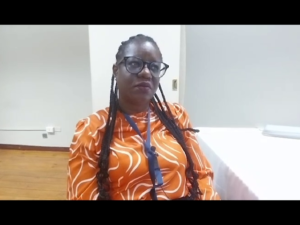
Valerie Fris
Valerie Fris, Freelance Journalist, Suriname
“In Suriname we don’t have a lot of investigative journalism, but that is mainly because of we don’t have the funds, the, most of the newsrooms are like, you go to report an item, you come back, and that’s it, but no deeper stories, no larger stories. And I want to be – set myself apart from that and do these kind of stories just investigate and take the time to go deeper.”
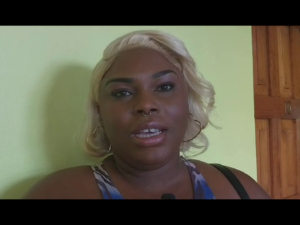
Latrishka Thomas
Latrishka Thomas, Producer, Observer Media, Antigua
“I haven’t done that much investigative or that many investigative pieces. I’m usually do features or quote reporting, but I thought that this would be helpful because it’s something I’ve always wanted to venture into, and I learned a lot of tools, things I didn’t think and would have never thought of tools such as how being more secure. I didn’t realize how much my devices are unsecure, and I learned so many tools I think I could take back home to tell my colleagues, and also to write a very, impactful feature a very impactful investigative story.”
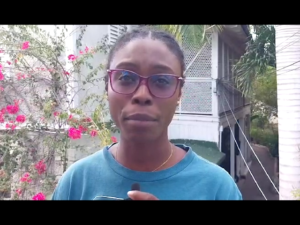
Michron Robinson
Michron Robinson, Freelance Journalist, G.I.S., Barbados
“This was a really good capacity building session for our Caribbean journalists. Oftentimes, we may face a lot of pushback going after stories in terms of investigative journalism. There’s oftentimes the call by our policymakers, by our politicians, by our leaders for more investigative journalists, but it asks, the question is oftentimes asked, do our policymakers really want investigative journalism as it could topple political systems. I feel more empowered as a Caribbean journalist to go after stories that are – that others may want to run away from.”
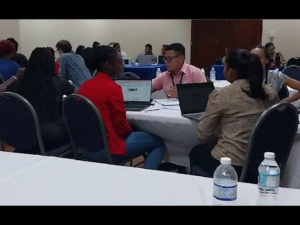 Kiran Maharaj, who, as a journalist, did not have this kind of support when she started out in journalism, told us that she wanted to provide a medium that can assist Caribbean journalists to advance the level and depth of their work.
Kiran Maharaj, who, as a journalist, did not have this kind of support when she started out in journalism, told us that she wanted to provide a medium that can assist Caribbean journalists to advance the level and depth of their work.
Kiran Maharaj
“We live in small societies, small communities, it’s difficult to tell the stories yet. There are ways to tell the stories still from different perspectives and angles, but our journalists just needed a solid foundation to be able to understand how to do it.”
Marion Ali for News Five.





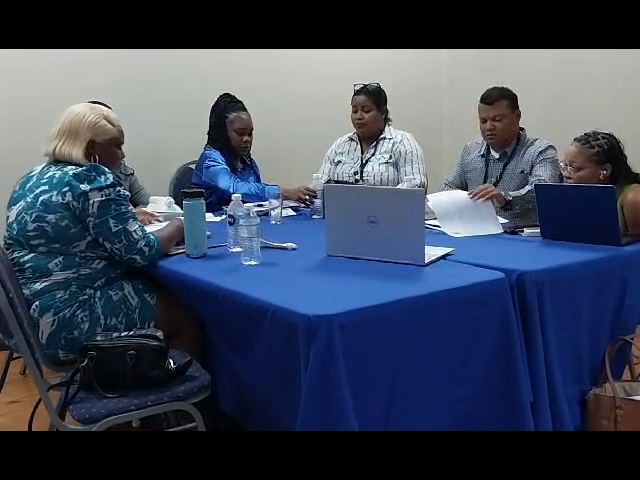
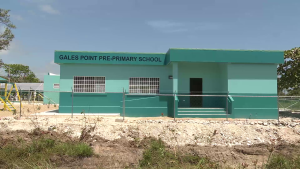
Facebook Comments